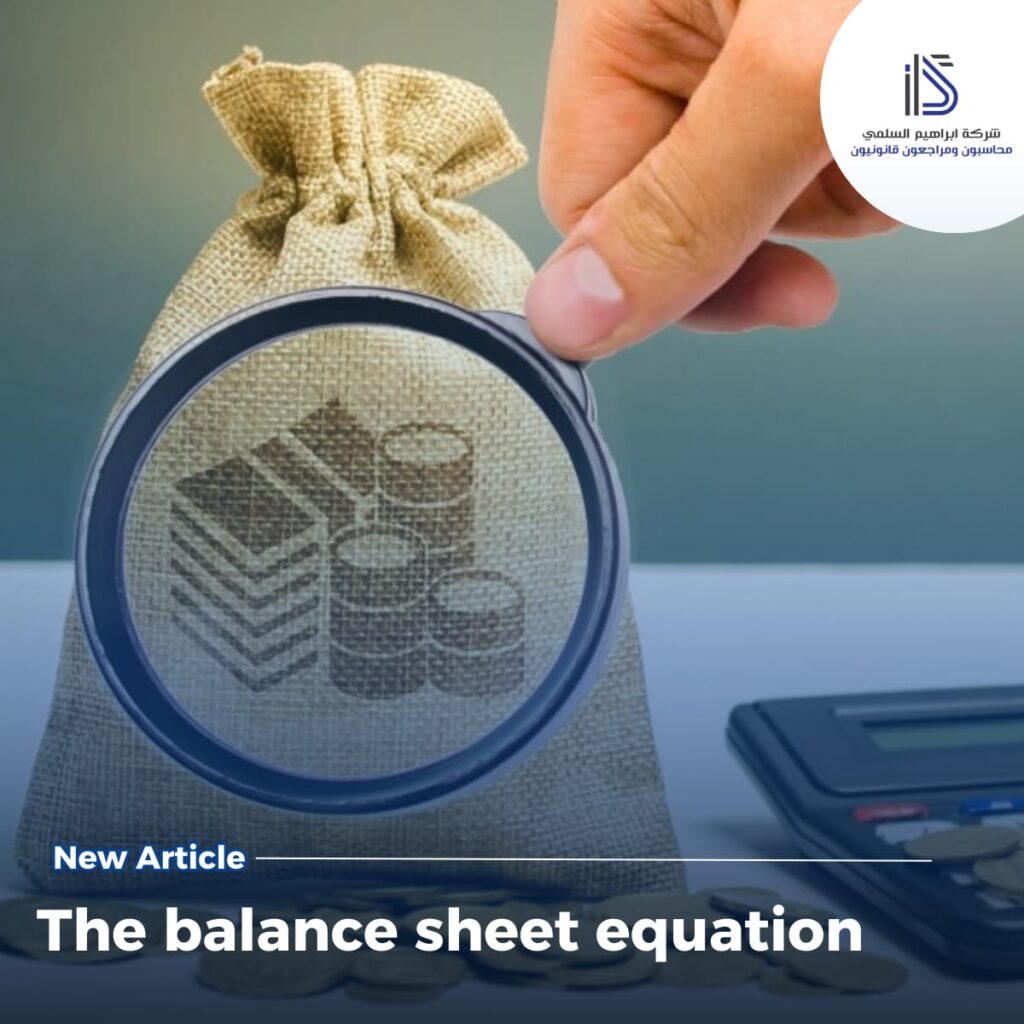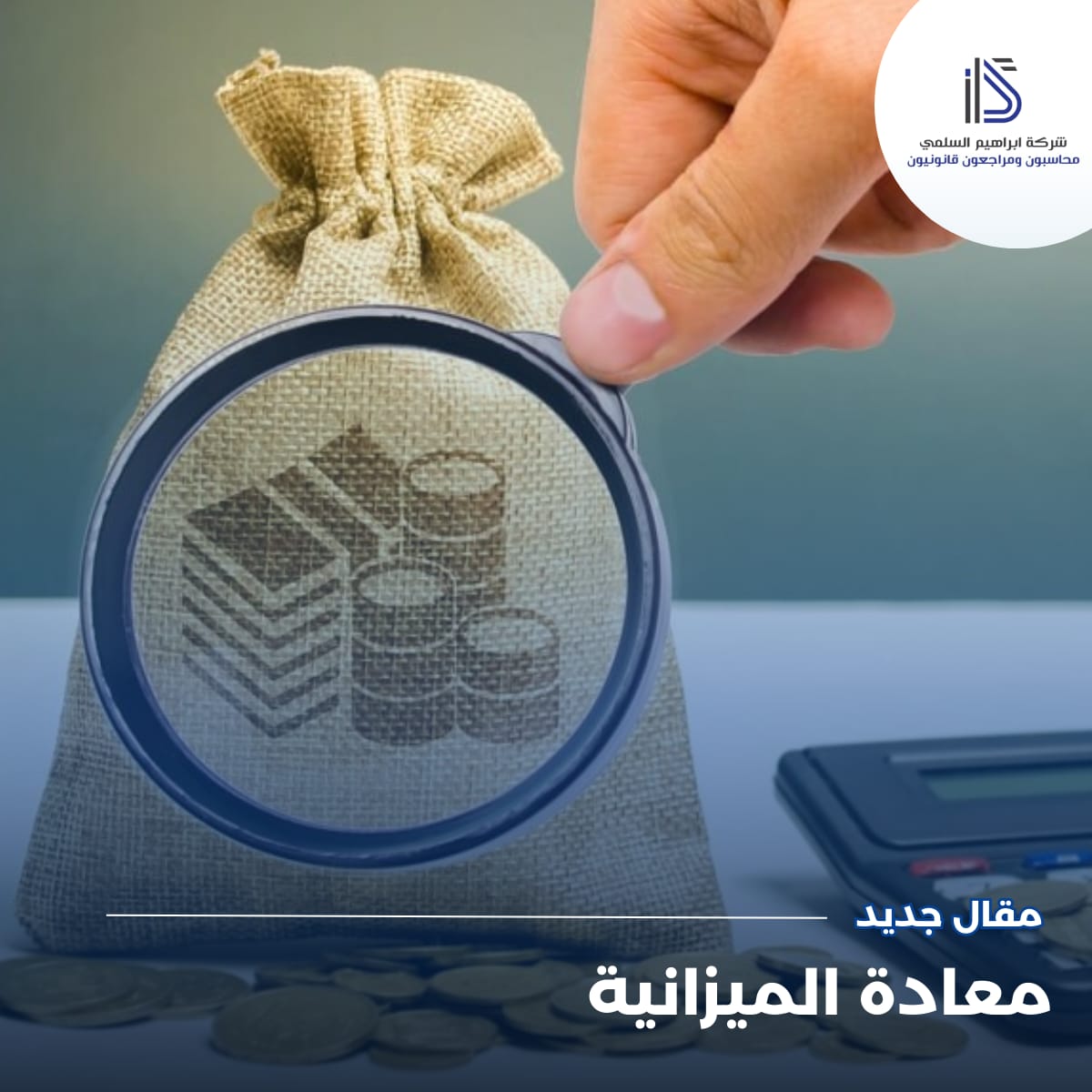The balance sheet equation: The cornerstone of financial accounting from the basics to the preparation of financial statements.
The Balance Sheet Equation: Foundation of Financial Accounting
The balance sheet equation represents the fundamental relationship between assets, liabilities, and equity in any economic entity, whether an institution or a company. This equation forms the basis for the entire accounting system and can be summarized as:
Assets = Liabilities + Equity
Since equity reflects the difference between revenues and expenses, the equation can also be presented as:
Assets = Liabilities + (Revenues – Expenses)
What Are Assets, Liabilities, and Equity?
- Assets
Assets are resources owned by a company that are used to generate profit, such as cash, inventory, property, and equipment. - Liabilities
Liabilities represent the company’s debts to others, like bank loans, trade payables, and accrued salaries. - Equity
Equity reflects the owners’ share in the company’s assets after deducting liabilities, including capital and retained earnings.
Importance of the Balance Sheet Equation
- Financial Balance
The balance sheet equation ensures ongoing financial balance within the company, where total assets always equal the combined value of liabilities and equity. - Assessing Financial Performance
By comparing balance sheet items over time, a company can assess its financial performance, analyze strengths and weaknesses, and benchmark against competitors. - Foundation for Other Financial Statements
The balance sheet equation is the foundation for preparing other financial statements, such as the income statement and cash flow report, organizing data according to this equation.
Applying the Balance Sheet Equation: An Example
Suppose a company has assets worth 100,000 SAR and liabilities totaling 60,000 SAR. To calculate equity, the equation is applied as follows:
Equity = Assets – Liabilities = 100,000 – 60,000 = 40,000 SAR
This means the company’s equity is 40,000 SAR, representing the remaining value of assets after covering all liabilities.
How Financial Transactions Affect the Balance Sheet Equation
Any financial transaction that affects one of the equation’s components helps maintain its balance. For example, if a company purchases new equipment, asset value increases. To keep the balance, the company can finance this purchase by:
- Increasing liabilities through a loan, which raises liabilities.
- Reducing equity by using retained earnings.
Uses of the Balance Sheet Equation
- For Investors
The equation helps evaluate the company’s financial strength and profit-generating capacity. - For Creditors
Creditors use the equation to assess the company’s ability to meet financial obligations and repay debt. - For Management
Management uses the equation to assess financial performance and make strategic decisions based on the company’s financial position. - For Accountants
Accountants rely on the balance sheet equation to prepare and verify financial statements, serving as a primary reference for any financial report.
Key Notes When Handling the Balance Sheet Equation
- Financial Analysis
Understanding the equation alone is insufficient; analyzing its elements is crucial for a deeper view of the company’s financial status. - Time-Based Changes
The balance sheet equation is influenced by ongoing financial transactions, such as financing, expenses, and revenue, impacting its components over time. - Integration with Other Financial Statements
It’s essential to interpret this equation in conjunction with other financial statements, like the income statement and cash flow report, for a comprehensive view of company performance.
Conclusion
The balance sheet equation is a cornerstone of accounting, offering an overview of the company’s financial position and supporting sound financial decision-making. Whether you are an accountant, investor, or manager, understanding this equation is essential for effective and sustainable financial management.
Ibrahim Al-Sulmi Office provides free consultations in the fields of Zakat and tax for entrepreneurs as a community service.
Link to the Excel accounting program
https://docs.google.com/spreadsheets/d/15UOWDz_u9Rbbvk4fzE5HktObcZwZfomf/edit?gid=683068368#gid=683068368

